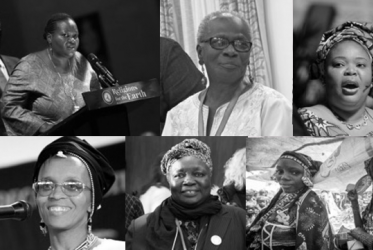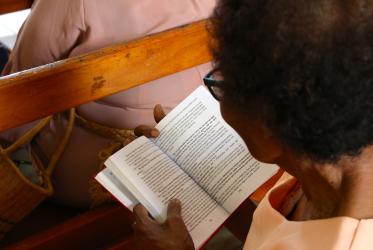Displaying 21 - 40 of 169
14 February 2022
WCC mourns passing of Rev. Dr Jose Pepito Manansala Cunanan
18 October 2021
How racism and colonialism are exacerbating impacts of climate change
29 September 2021
Brazilian churches call for transformative racial justice
23 November 2020
“Pray at home” an ecumenical call in Brazil
09 April 2020












